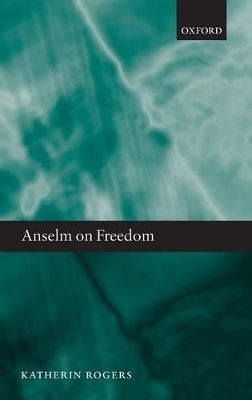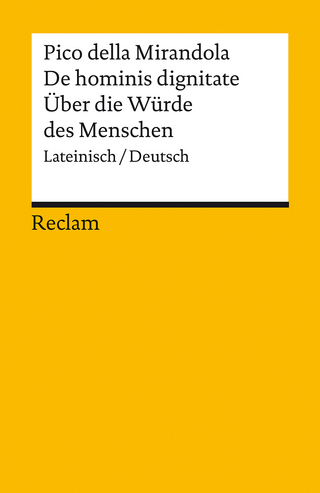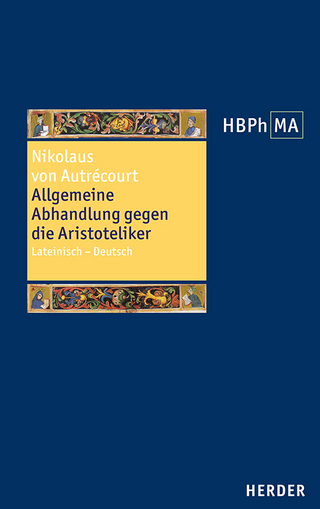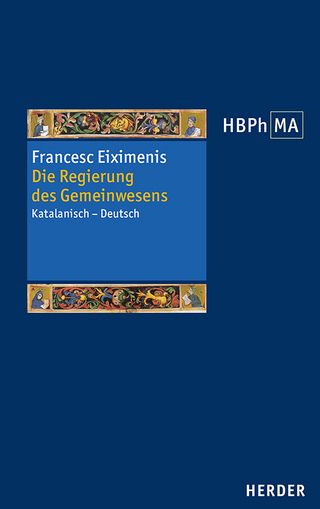
Anselm on Freedom
Seiten
2008
Oxford University Press (Verlag)
978-0-19-923167-6 (ISBN)
Oxford University Press (Verlag)
978-0-19-923167-6 (ISBN)
Can human beings be free and responsible if there is an all-powerful God? Anselm of Canterbury (1033-1109) offers viable answers to questions which have plagued religious people for at least two thousand years. Katherin Rogers examines Anselm's reconciliation of human free will and divine omnipotence in the context of current philosophical debates.
Can human beings be free and responsible if there is a God? Anselm of Canterbury, the first Christian philosopher to propose that human beings have a really robust free will, offers viable answers to questions which have plagued religious people for at least two thousand years: If divine grace cannot be merited and is necessary to save fallen humanity, how can there be any decisive role for individual free choice to play? If God knows today what you are going to choose tomorrow, then when tomorrow comes you have to choose what God foreknew, so how can your choice be free? If human beings must have the option to choose between good and evil in order to be morally responsible, must God be able to choose evil? Anselm answers these questions with a sophisticated theory of free will which defends both human freedom and the sovereignty and goodness of God.
Can human beings be free and responsible if there is a God? Anselm of Canterbury, the first Christian philosopher to propose that human beings have a really robust free will, offers viable answers to questions which have plagued religious people for at least two thousand years: If divine grace cannot be merited and is necessary to save fallen humanity, how can there be any decisive role for individual free choice to play? If God knows today what you are going to choose tomorrow, then when tomorrow comes you have to choose what God foreknew, so how can your choice be free? If human beings must have the option to choose between good and evil in order to be morally responsible, must God be able to choose evil? Anselm answers these questions with a sophisticated theory of free will which defends both human freedom and the sovereignty and goodness of God.
Katherin Rogers is Associate Professor of Philosophy at the University of Delaware, specializing in Medieval Philosophy and Philosophy of Religion.
Introduction ; 1. Anselm's Classical Theism ; 2. The Augustinian Legacy ; 3. The Purpose, Definition, and Structure of Free Choice ; 4. Alternative Possibilities and Primary Agency ; 5. The Causes of Sin and the Intelligibility Problem ; 6. Creaturely Freedom and God as Creator Omnium ; 7. Grace and Free Will ; 8. Foreknowledge, Freedom and Eternity: Part I The Problem and Historical Background ; 9. Foreknowledge, Freedom and Eternity: Part II Anselm's Solution ; 10. The Freedom of God ; Bibliography
| Erscheint lt. Verlag | 19.6.2008 |
|---|---|
| Verlagsort | Oxford |
| Sprache | englisch |
| Maße | 162 x 242 mm |
| Gewicht | 516 g |
| Themenwelt | Geisteswissenschaften ► Philosophie ► Philosophie des Mittelalters |
| Geisteswissenschaften ► Religion / Theologie | |
| ISBN-10 | 0-19-923167-2 / 0199231672 |
| ISBN-13 | 978-0-19-923167-6 / 9780199231676 |
| Zustand | Neuware |
| Haben Sie eine Frage zum Produkt? |
Mehr entdecken
aus dem Bereich
aus dem Bereich
Lateinisch - Deutsch
Buch | Hardcover (2024)
Herder (Verlag)
70,00 €


